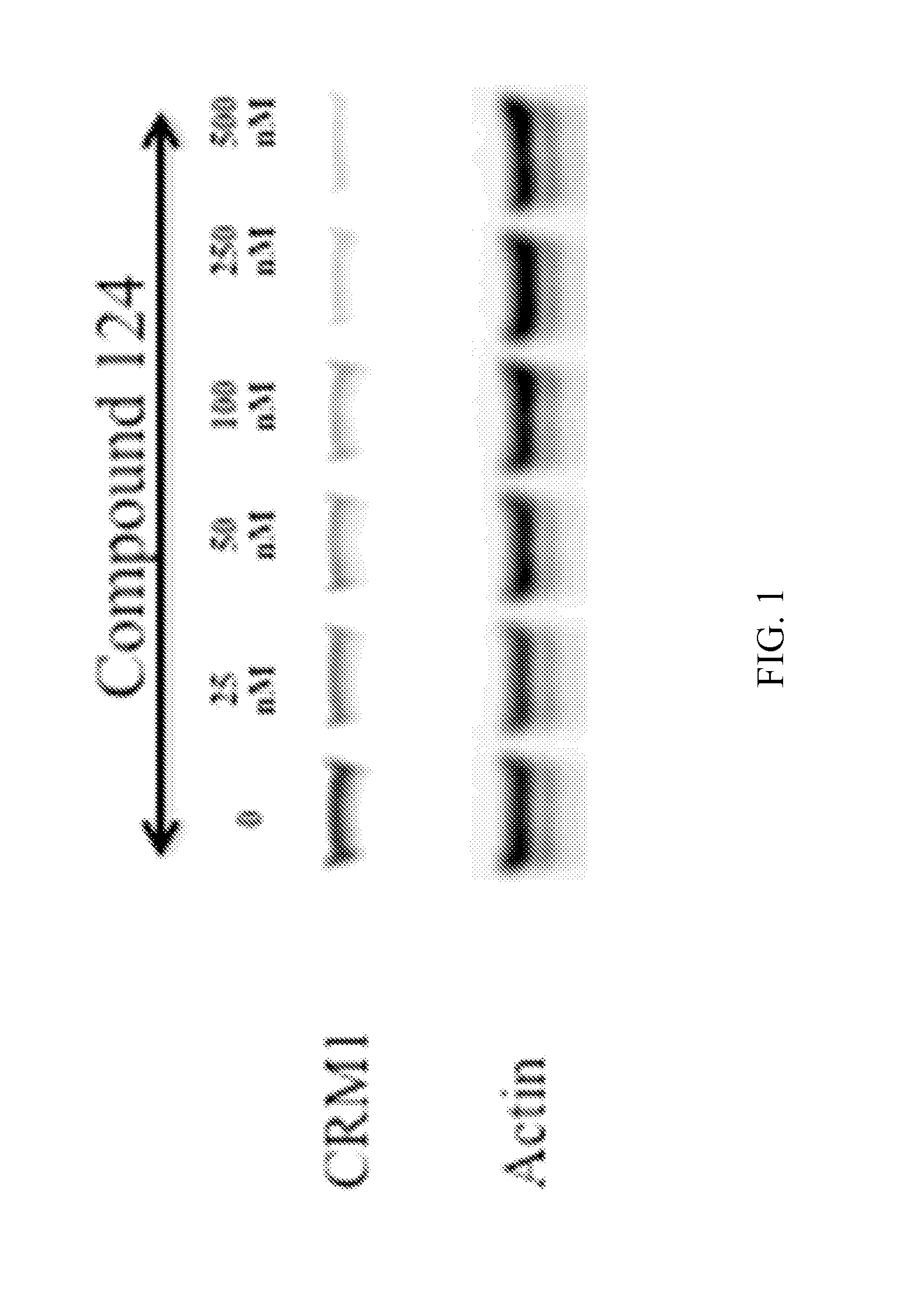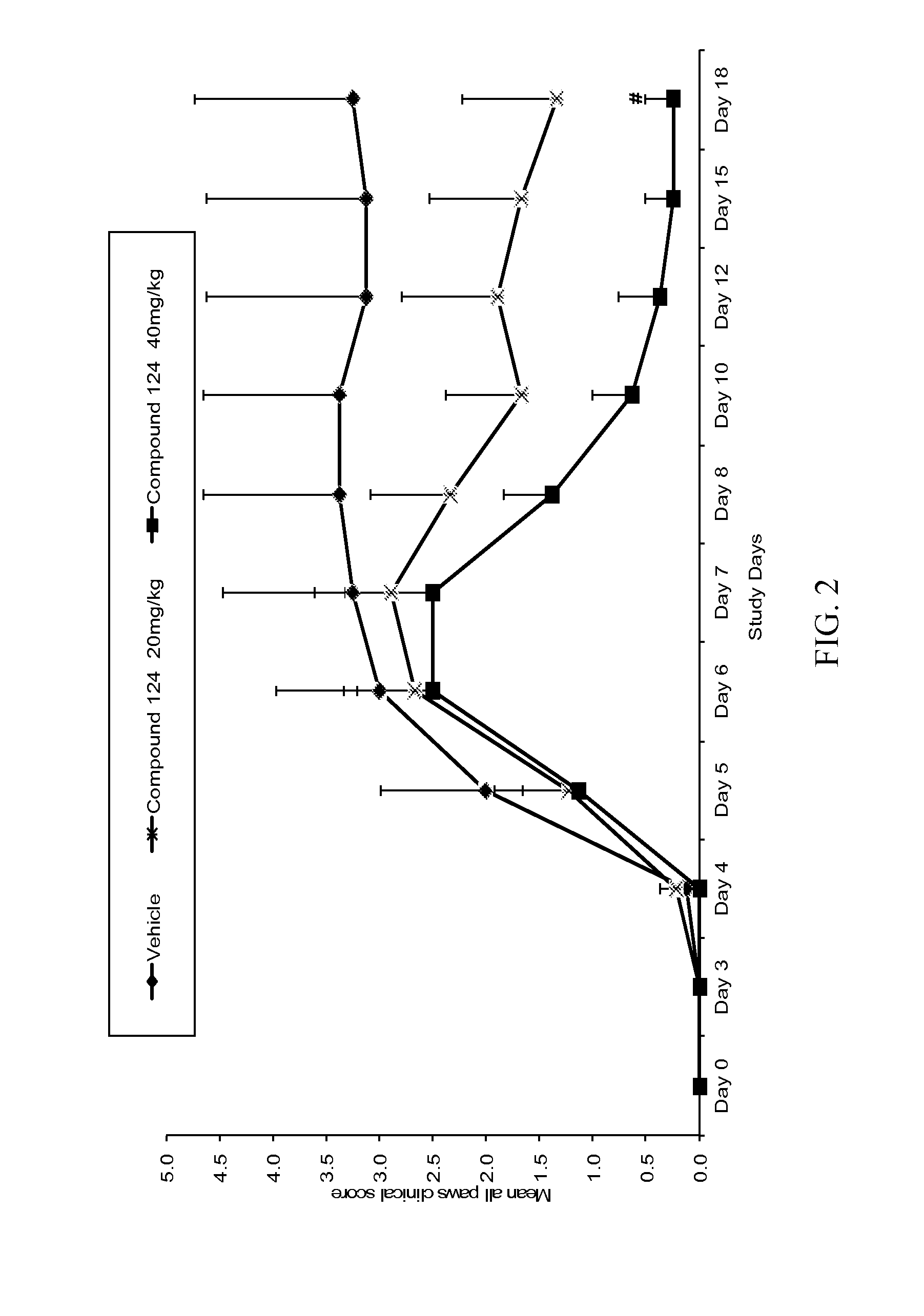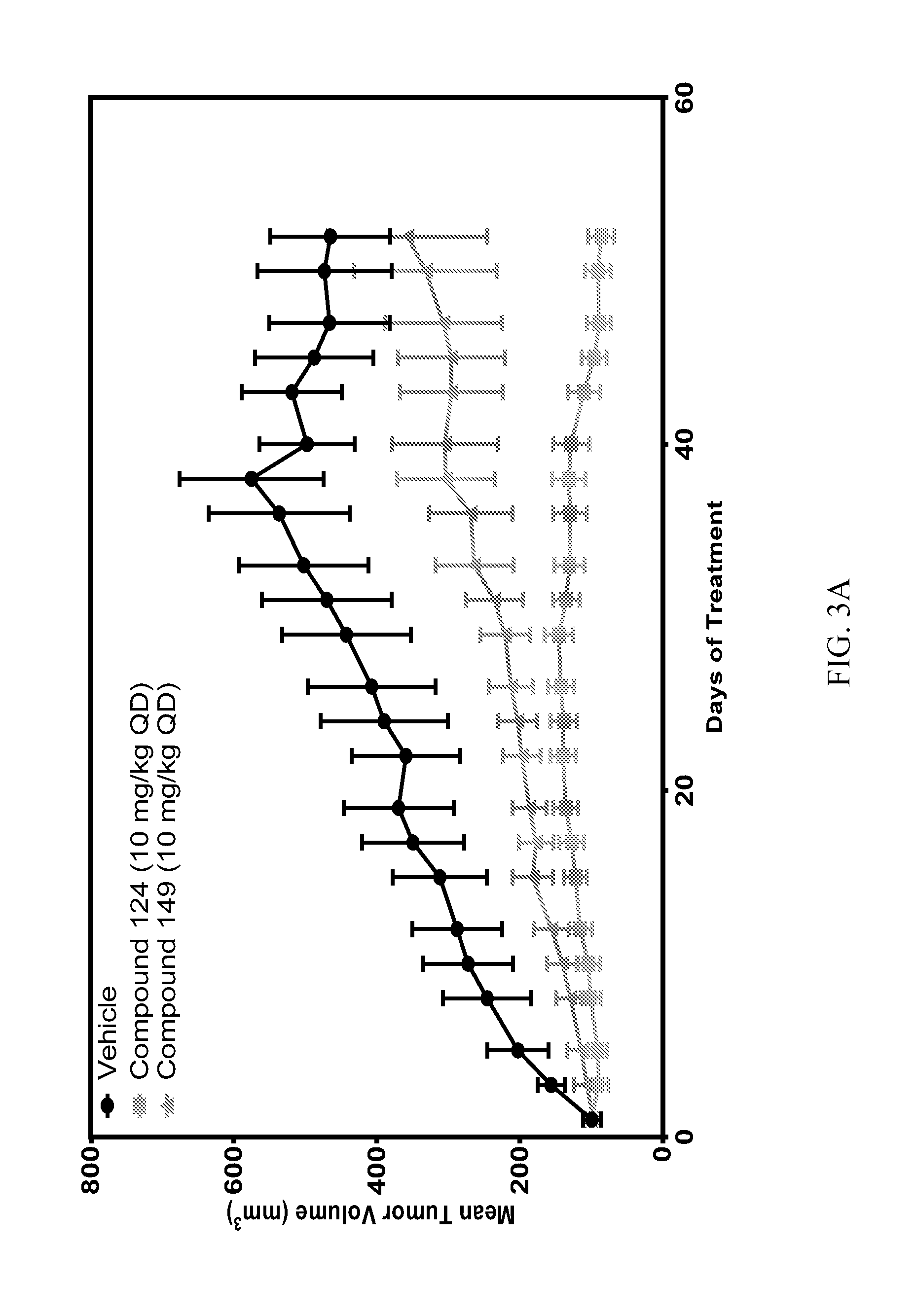Nuclear Transport Modulators and Uses Thereof
- Summary
- Abstract
- Description
- Claims
- Application Information
AI Technical Summary
Benefits of technology
Problems solved by technology
Method used
Image
Examples
example 1
Synthetic Procedures Synthesis of 3-(3-(3,5-bis(trifluoromethyl)phenyl)-1H-1,2,4-triazol-1-yl)-2-(pyridin-2-yl)acrylonitrile (100)
[0307]
Synthesis of 3-ethoxy-2-(pyridin-2-yl)acrylonitrile (2)
[0308]2-Pyridyl acetonitrile (1) (1.00 g, 8.46 mmol) and triethyl orthoformate (1.25 g, 8.46 mmol) were added to acetic anhydride (1.73 g, 16.93 mmol) at room temperature. The resulting reaction mixture was heated at 100° C. for 3 h, cooled to room temperature, diluted with water (500 mL), and extracted with ethyl acetate (100 mL×3). The combined organic layers were washed with brine, dried over anhydrous Na2SO4, and concentrated under reduced pressure to give 800 mg of crude 3-ethoxy-2-(pyridin-2-yl)acrylonitrile (2), which was used without further purification in the following step. Yield (34%), LCMS: m / z 175.20 [M+H]+, tR=1.52 min.
Synthesis of 3-hydrazinyl-2-(pyridin-2-yl)acrylonitrile (3)
[0309]3-Ethoxy-2-(pyridin-2-yl)acrylonitrile (2) (800 mg, 4.59 mmol) and hydrazine hydrate (230 mg, 4.59 ...
example 2
Assays
[0434]Certain compounds of the invention were tested in various assays.
Inhibition of Nuclear Export—Rev-GFP Assay
[0435]The inhibition of CRM1 mediated nuclear export by compounds of the invention was determined in a RevGFP assay. Rev is a protein from human immunodeficiency virus type 1 (HIV-1) and contains a nuclear export signal (NES) in its C-terminal domain and a nuclear localization signal (NLS) in its N-terminal domain. Nuclear export of Rev protein is dependent on the classical NES / CRM1 pathway (Neville et al, 1997, Kau et al, 2003). Nuclear and nucleolar accumulation of Rev is observed in cells treated with specific inhibitors of CRM1, such as LMB (Kau et al, 2003).
[0436]In this assay, U2OS-RevGFP cells were seeded onto clear-bottom, black, 384-well plates the day before the experiment. Compounds were serially diluted 1:2 starting from 40 μM in a separate 384-well plate in DMEM, and then transferred onto cells. Cells were incubated with compound for approximately 1 hou...
example 3
Collagen Antibody-Induced Arthritis (CAIA) Mouse Model
[0447]Compound 124 was evaluated in an anti-collagen antibody-induced mouse model of rheumatoid arthritis. Specifically, twenty-four (24) male Balb / c mice, aged 6 to 7 weeks, were randomly assigned to 3 groups that would receive vehicle, Compound 124 at 20 mg / kg or Compound 124 at 40 mg / kg. On study Day 0 (study commencement), all mice were subjected to a 4 mg intravenous injection of ArthritoMAb™ antibody cocktail (MD Biosciences #51306001), followed by an intraperitoneal injection of LPS (50 μg / mouse) on study Day 3. The mice began treatment on Day 6, when the average clinical scores reached 2. Treatment with Compound 124 was given PO, twice a week (Mondays and Wednesdays) up until Day 17.
[0448]The animals were examined for signs of arthritis on study Day 0 in all paws (front left and right paws, hind left and right paws). The signs of arthritis on study Day 0 served as a baseline for the arthritis clinical score parameter. Art...
PUM
| Property | Measurement | Unit |
|---|---|---|
| Pharmaceutically acceptable | aaaaa | aaaaa |
Abstract
Description
Claims
Application Information
 Login to View More
Login to View More - R&D
- Intellectual Property
- Life Sciences
- Materials
- Tech Scout
- Unparalleled Data Quality
- Higher Quality Content
- 60% Fewer Hallucinations
Browse by: Latest US Patents, China's latest patents, Technical Efficacy Thesaurus, Application Domain, Technology Topic, Popular Technical Reports.
© 2025 PatSnap. All rights reserved.Legal|Privacy policy|Modern Slavery Act Transparency Statement|Sitemap|About US| Contact US: help@patsnap.com



